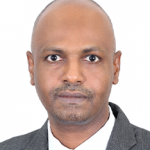This study investigates the factors that influence the participation of the informal workers in health insurance program in two Sudanese states, namely, Kassala and Khartoum. To this end, the study relies on primary data collected from 742 informal workers in these two states. Both qualitative and quantitative techniques have beenadopted to carry out the intended investigation. The analysis indicates that factors such as respondent’ age, wealth status, chronic disease status, morbidity, health insurance awareness, health-seeking behavior and proximity to health care facilities arethe most significant factors affecting informal workers’ engagement in health insurance system. The result also reveals that being residing in urban areas lowers the probability of joining health insurance membership in the full, Kassala and Khartoum samples. Both monetary income and average years of schooling are found to contribute positively in raising the likelihood of voluntary enrollment in health insurance. These findings still hold under different robustness checks, confirming the existence of barriers that prevent a huge portion of the informal workers from voluntary enrollment in health insurance. Finally, the paper ends with some recommendations aimedat enhancing the role of NHIF in accommodating the informal workers and achieving universal health coverage.

Authors
Mohammed Elhaj Mustafa Ali
Assistant Professor, University of Kassala

Research Fellows
Ebaidalla Mahjoub Ebaidalla
Assistant Research Professor, Ibn Khaldon Center for...


